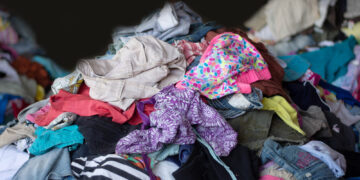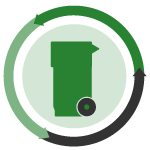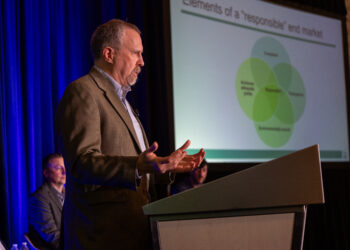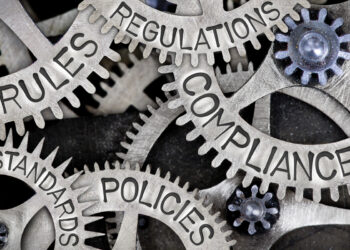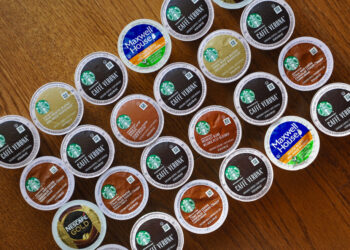An audit report examines the extended producer responsibility program in British Columbia, and textiles recycling comes to the curb in one Texas city.
EPR in B.C.: The auditor general of British Columbia, Canada has written a report on the extended producer responsibility program in the province. Overall, the report found the program to be working well but did identify five areas that needed improvement.
Recycling blogs: Recycling industry expert Marisa Adler wrote several blog posts for Resource Recycling Systems (RRS), focusing on topics including product stewardship, the circular economy and product service systems.
ISRI additions: The Institute of Scrap Recycling Industries (ISRI) is making changes to its Scrap Specifications Circular. It is postponing the deletion of several paper specifications to allow those in the industry to make necessary adjustments while making several changes to its plastics specifications.
Recycling robots: A MRF handling construction and demolition debris in Austin, Texas is the first in the U.S. to install a robotic sortation system from ZenRobotics. Austin has an ordinance requiring contractors to divert at last 50 percent of construction materials from landfill.
Textile recycling: Austin also has a new curbside textile recycling service, according to KXAN. Residents are asked to place clothes and other materials in a special green bag, which will be picked up by a contractor.
Metals from medications: Veolia is mining precious metals from old pharmaceuticals, according to Recycling International. Veolia has already managed to produce two rings from platinum taken from old medications.
Marine debris: The Plastics BAN (Better Alternatives Now) List examines the most common plastic marine litter found in California. It also proposes alternatives for the items. The most common piece of litter found, by count, is food wrappers and containers, packaging including chip bags and cookie trays.

